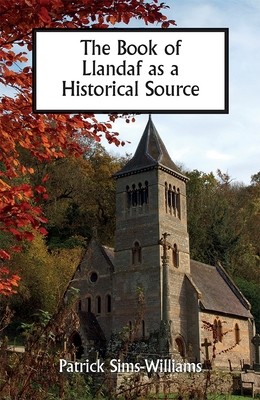
- We will send in 10–14 business days.
- Author: Patrick Sims-Williams
- Publisher: Boydell Press
- ISBN-10: 1783274182
- ISBN-13: 9781783274185
- Format: 15.6 x 23.4 x 1.4 cm, hardcover
- Language: English
- SAVE -10% with code: EXTRA
Reviews
Description
Revisionist approach to the question of the authenticity - or not - of the documents in the Book of Llandaf.
Awarded the Francis Jones Prize in Welsh History 2019 by Jesus College Oxford The early-twelfth-century Book of Llandaf is rightly notorious for its bogus documents - but it also provides valuable information on the earlymedieval history of south-east Wales and the adjacent parts of England. This study focuses on its 159 charters, which purport to date from the fifth century to the eleventh, arguing that most of them are genuine seventh-century and later documents that were adapted and "improved" to impress Rome and Canterbury in the context of Bishop Urban of Llandaf's struggles in 1119-34 against the bishops of St Davids and Hereford and the "invasion" of monks from English houses such as Gloucester and Tewkesbury. After assembling other evidence for the existence of pre-twelfth-century Welsh charters, the author defends the authenticity of most of the Llandaf charters' witness lists, elucidatestheir chronology, and analyses the processes of manipulation and expansion that led to the extant Book of Llandaf. This leads him to reassess the extent to which historians can exploit the rehabilitated charters as an indicator of social and economic change between the seventh and eleventh centuries and as a source for the secular and ecclesiastical history of south-east Wales and western England. PATRICK SIMS-WILLIAMS is a Fellow of the British Academy; he was formerly Reader in Celtic and Anglo-Saxon in the University of Cambridge and Professor of Celtic Studies at Aberystwyth University.EXTRA 10 % discount with code: EXTRA
The promotion ends in 17d.10:34:53
The discount code is valid when purchasing from 10 €. Discounts do not stack.
- Author: Patrick Sims-Williams
- Publisher: Boydell Press
- ISBN-10: 1783274182
- ISBN-13: 9781783274185
- Format: 15.6 x 23.4 x 1.4 cm, hardcover
- Language: English English
Revisionist approach to the question of the authenticity - or not - of the documents in the Book of Llandaf.
Awarded the Francis Jones Prize in Welsh History 2019 by Jesus College Oxford The early-twelfth-century Book of Llandaf is rightly notorious for its bogus documents - but it also provides valuable information on the earlymedieval history of south-east Wales and the adjacent parts of England. This study focuses on its 159 charters, which purport to date from the fifth century to the eleventh, arguing that most of them are genuine seventh-century and later documents that were adapted and "improved" to impress Rome and Canterbury in the context of Bishop Urban of Llandaf's struggles in 1119-34 against the bishops of St Davids and Hereford and the "invasion" of monks from English houses such as Gloucester and Tewkesbury. After assembling other evidence for the existence of pre-twelfth-century Welsh charters, the author defends the authenticity of most of the Llandaf charters' witness lists, elucidatestheir chronology, and analyses the processes of manipulation and expansion that led to the extant Book of Llandaf. This leads him to reassess the extent to which historians can exploit the rehabilitated charters as an indicator of social and economic change between the seventh and eleventh centuries and as a source for the secular and ecclesiastical history of south-east Wales and western England. PATRICK SIMS-WILLIAMS is a Fellow of the British Academy; he was formerly Reader in Celtic and Anglo-Saxon in the University of Cambridge and Professor of Celtic Studies at Aberystwyth University.

Reviews